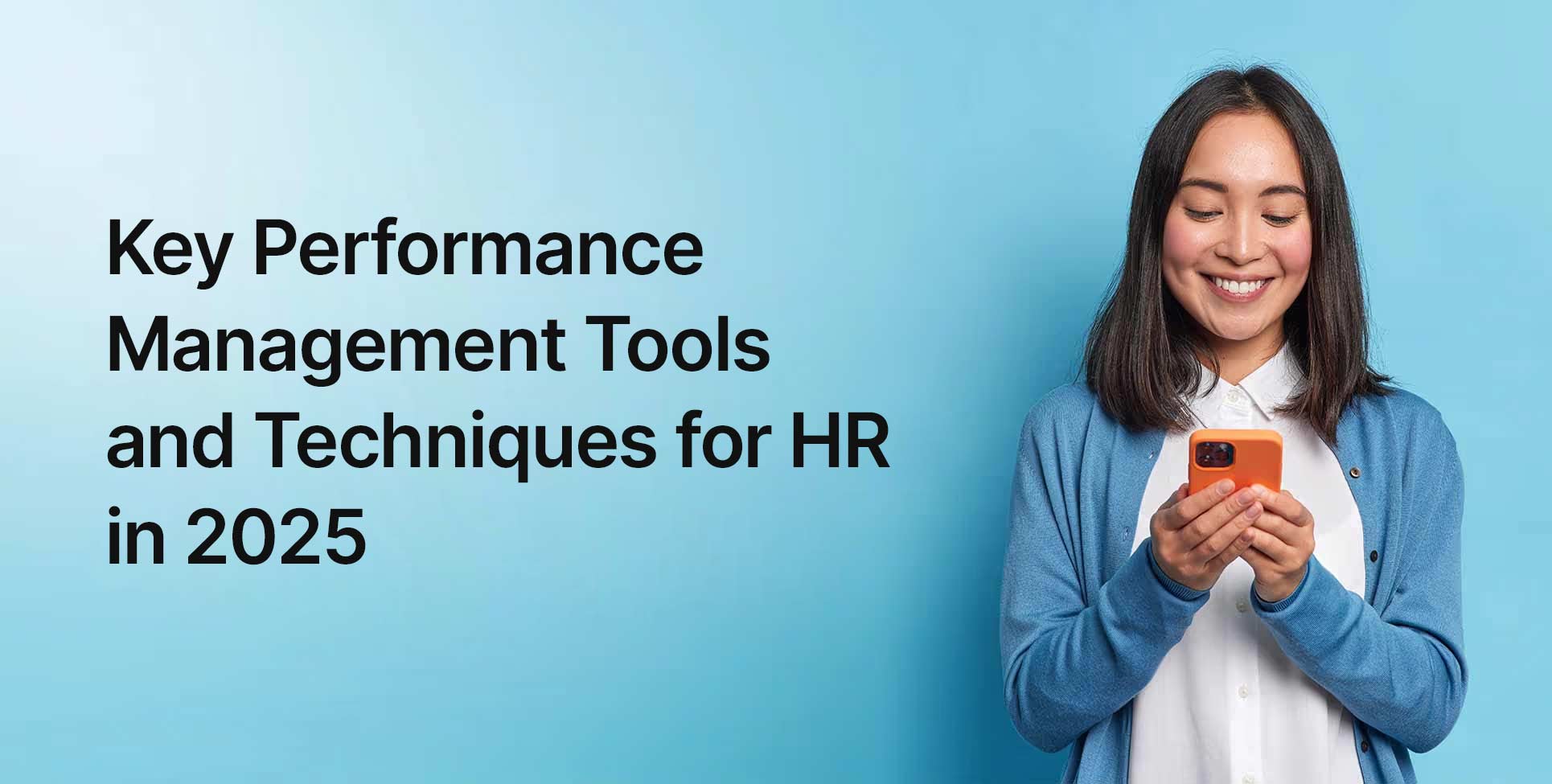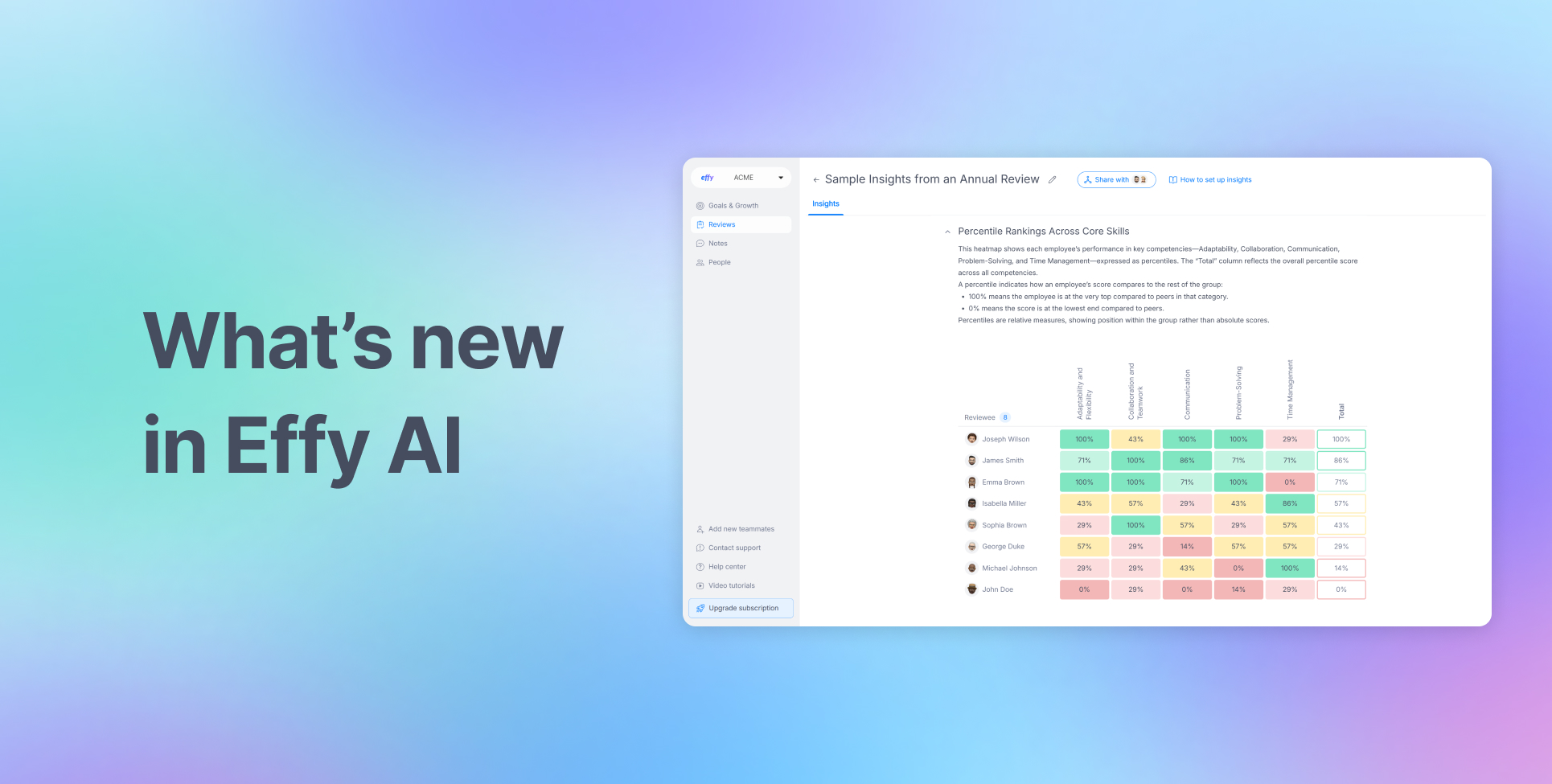For businesses looking to create internal learning and development processes for employees, performance reviews are a great place to start. Not only do they keep employees motivated, but they also improve overall company culture.
They’re a must-have tool for all the businesses that care about employee satisfaction and are looking to save time on sometimes overcomplicated HR processes.
In this article, you'll discover the best performance management tools that will help you significantly boost productivity and streamline your HR operations. We'll also help you choose the right performance management software for you.
{{banner-3="/banner-page"}}
What are HR performance management tools?
Performance management tools are systems and software designed to help managers and HR teams monitor, evaluate, and improve employee performance.
As you'll see below, there are different types of these tools: from employee reviews and pulse surveys to comprehensive workforce management tools.
Businesses can benefit from these tools by saving time and retaining top talent.
But business leaders aren’t the only ones who can benefit from these tools. There’s something for employees as well. Performance management tools give them an opportunity to express their opinions and expectations and grow both personally and professionally. After all, who doesn’t like being appreciated?
Types of performance management tools
Check out the following list to explore different types of performance management solutions and find the best performance management software for you.

OKR (objectives and key results) and goal-setting
OKR is a goal-setting framework that consists of two components – objectives or goals that need to be achieved and key results that are measurable outcomes used to track progress.
These are mostly used for team alignment with individual goals in an effort to bring everyone closer to being on the same page when it comes to business objectives They also provide a transparent system for measuring progress toward those objectives and performance evaluation.
In a nutshell, they help companies by providing employees with a clear direction which leads to boosting productivity and ultimately to bigger results.
{{banner-9="/banner-page"}}
Check-ins
Check-ins are informal, occasional meetings between managers and employees that help maintain open communication and make employees feel supported. They focus on discussing progress, addressing challenges, and realigning goals.
Many managers schedule check-ins a couple of weeks after performance reviews or goal-setting sessions to see whether employees are implementing feedback and whether they need additional support. The preference for timing is based on personal feelings. However, it is recommended to set up a meeting at least once a month, every two weeks ideally, depending on the workload and availability.
Performance reviews
Performance reviews are formal evaluations that assess an employee's strengths, weaknesses, contributions, and challenges over a particular period of time. They serve to provide feedback, set future goals, and identify areas for improvement.
Review cycles are usually done quarterly or annually, depending on the company. They're essential for aligning employee goals with organizational objectives.
Performance reviews are usually dreaded by employees due to their nature. But there’s nothing to be afraid of. At the end of the day, they’re there for both the company’s and the employee’s benefits. It all comes down to what the managers are asking and how to get the best out of the feedback. After all, if you're not sure how to conduct a performance review, we have prepared a detailed guide.
Performance improvement plans
Performance improvement plans are designed to address specific performance issues, such as poor time management skills, inconsistent quality of work, or failure to meet goals. They provide employees with actionable steps for improvement, focusing on support instead of just criticizing their performance.
Performance improvement plans will highlight clear expectations and timelines but also provide resources for improvement. These are especially important for the employees who are fresh hires, as improvement plans will help them work on the skills they’re missing.
Talent assessments
Talent assessments are an important part of talent management. They can identify employees' skills, potential, and ambition.
Assessment can be done either through tests, interviews, or observation. Their main objective is to identify high-potential employees, which are crucial for strategic planning as well as retaining top talents.
360-degree feedback
360-degree feedback provides a detailed performance evaluation by collecting input from multiple sources, including managers, peer-to-peer feedback, and self-evaluation. As such, it reduces bias and provides a holistic view of an employee's strengths, weaknesses, and areas for growth, hence the name 360-degree.
If you want to implement this type of employee feedback but don't know where to start, check out our guide on 360 feedback for managers and these 360 feedback examples.
{{banner-4="/banner-page"}}
Personal development plan
A personal development plan acts as a roadmap for employee growth and development. It can include an employee's goals, skills to improve, courses and training sessions to take, etc.
It serves to align individual ambitions with organizational objectives, and it outlines strategies for both personal and professional growth, although the stress is more on the latter
If you want to work on improving employee satisfaction, make sure to collaborate with them on creating development plans that align with their aspirations and needs.
Continuous feedback
If you have no time to waste and wait for quarterly or annual reviews, we suggest going for continuous feedback. This way, you can provide instant feedback to your employees and monitor their progress in real time.
Ongoing feedback promotes a culture of transparency, adaptability, and continuous improvement.
If you want to implement a continuous performance management system, you can start by scheduling regular check-ins or using performance review software like Effy AI that lets you request instant feedback through Slack, increasing response rates with its convenient and user-friendly approach.
One-on-ones
One-on-ones are scheduled meetings between a manager and an employee that focus on an employee's individual performance, goals, and challenges.
They're essential for building trust and relationships and making employees feel valued and seen. They provide both parties with an opportunity to address concerns and discuss important topics in private.
Engagement surveys
Employee engagement surveys measure the level of motivation, participation, and satisfaction among employees. They're usually conducted in the form of quick pulse surveys.
Surveys can also be used to feel the pulse regarding a particular topic or identify employee needs and aspirations.
They can also be part of a more complex employee experience software that's used for employee recognition and appraisal.
{{banner-1="/banner-page"}}
AI performance management
90% of HR managers said that the biggest reason for implementing AI in their operations was to increase productivity and efficiency and reduce manual workload.
While this is absolutely true, there's so much more that AI tools bring to the table, from delivering valuable insights to changing the overall employee experience.

Effy AI stands as one of the best performance management software that combines the latest psychological breakthroughs, advanced analytics, and artificial intelligence with the goal of revolutionizing your employee review process.
Here are the key benefits of using AI in your performance management process:
Predictive analysis
AI tools can analyze large volumes of employee reviews, feedback forms, and performance data, which saves valuable time. They're able to identify trends, patterns, and correlations that often go unnoticed by the human eye.
For example, they can spot skill gaps, pain points in work processes, or potential disengagement risks.
AI-driven predictive insights within HR systems for small business allow teams to stay ahead and make proactive decisions regarding tailored training programs or adjusting workloads. This leads not only to increased productivity but also to better employee satisfaction and retention.
Personalized feedback
In an ideal world, HR managers would have time to write detailed, personalized feedback for every employee, but we all know that's not always the case, especially as your organization and the number of employees grow.
That's where people management software like Effy AI steps in.
Effy AI can analyze all performance reviews and feedback forms to generate personalised summaries for each employee. Our tool identifies individual strengths, areas for improvement, and specific development opportunities, making feedback relevant.
Not only that, it provides every employee with actionable steps and it can create personalized development plans with only a few clicks. Easy, fast, and valuable.
Continuous monitoring and reporting
AI tools allow you to automate your performance tracking, so you can switch from having one performance review cycle a year to a more frequent and continuous approach.
Does that mean you'll have to create performance reviews from scratch every time?
Not at all! With Effy AI, you can run your performance reviews in minutes.
Choose one of our pre-made templates or answer a few questions and let Effy AI generate a personalized review form.
Conclusion
If you're ready to take your employee performance management to the next level and improve productivity, efficiency, and engagement without having to spend extra time on your performance review process, you’ve come to the right place.
Effy AI comes with multiple performance review tools, including 360-degree feedback, templates, and AI-generated forms, that let you run and analyze performance reviews in seconds.
While you’re working on the business goals, our tool will simultaneously generate personalized feedback summaries with action plans for improvement. Our tool saves you time by generating personalized feedback summaries with action plans for improvement.


